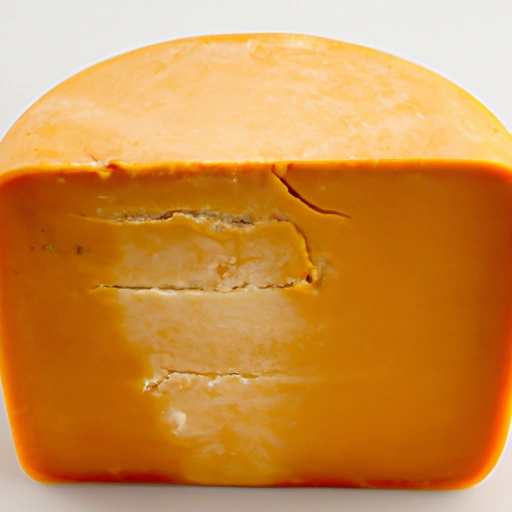Cheddar
Description

Cheddar is a widely popular semi-hard cheese originating from the village of Cheddar in Somerset, England. With its distinct sharp flavor, it varies in taste depending on the length of aging. The color ranges from white to deep orange, with some varieties dyed with annatto to achieve the rich color.
Common uses
Cheddar cheese is incredibly versatile and can be used in a variety of dishes. It is commonly served with crackers, sandwiches, as a topping for soups and salads, and melted into sauces and casseroles.
Nutritional value
Calories
One ounce (28 grams or about 1 slice) of cheddar cheese contains approximately 115 kcal (calories).
Protein
This same serving size offers about 7 grams of protein, making it a good source of this essential macronutrient.
Fat
Cheddar cheese is rich in fats, providing about 9.4 grams per ounce, with 6 grams being saturated fat.
Carbohydrates
It is very low in carbohydrates, with less than 1 gram per ounce.
Vitamins
Cheddar is a good source of Vitamin A and contains some B-vitamins including B12.
Minerals
The cheese is also rich in calcium, offering about 200 mg per ounce, and contains phosphorus and zinc.
Health benefits
Due to its high calcium content, cheddar can be beneficial for bone health. The protein in cheddar can also help with muscle repair and growth.
Potential risks
However, due to its high saturated fat and sodium content, excessive consumption can increase the risk of heart disease and high blood pressure. Those with lactose intolerance or dairy allergies should avoid cheddar cheese.
Common recipes
Cheddar is used in a multitude of recipes, from simple grilled cheese sandwiches to complex gourmet dishes like soufflés and terrines.
Cooking methods
Cheddar melts well, making it perfect for baking, broiling, and grilling.
Pairing with other ingredients
It pairs wonderfully with fruits like apples and pears, complements wines such as Cabernet Sauvignon, and pairs with beers, particularly ales and stouts.
Summary
In summary, cheddar is a flavorful, protein-rich cheese with a variety of culinary applications. While it can be part of a balanced diet, moderation is key to managing its saturated fat and sodium content. Its historical significance and versatility continue to make it a beloved ingredient in kitchens around the world.